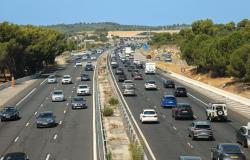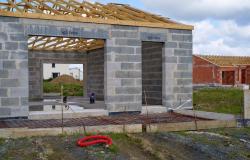
Indian Prime Minister Narendra Modi is moving towards victory in the legislative elections on Tuesday but with a reduced parliamentary majority, “punished” according to the opposition which emerges strengthened from the poll, after 95% of ballots were counted.
Analysts and exit polls predicted a landslide victory for Mr. Modi and his party, whose campaign appealed to the Hindu majority, much to the dismay of religious minorities.
But for the first time in a decade, Mr. Modi’s Bharatiya Janata Party (BJP) may not carry a majority alone and be forced to rely on allies in his coalition, according to figures from the electoral commission.
The Congress, the main opposition party, for its part, seems able to almost double the number of parliamentary seats, a remarkable turnaround achieved thanks to agreements aimed at presenting single candidates against the steamroller of the BJP.
Read also | Israel bombards Gaza Strip from north to south despite calls for ceasefire
“The voters punished the BJP,” Congress leader Rahul Gandhi told the press, re-elected with a lead of more than 364,000 votes in the southern constituency of Wayanad.
According to the electoral commission, after counting 95% of the ballots, the BJP and its allies would obtain at least 292 seats. You need 272 to have a majority in the 543-seat lower house.
The BJP, with 36.8% of the vote, only leads with 240 seats, according to these partial results, much less than in 2019 when it won 303 seats. The Congress, on the contrary, would win 98 seats against 52 five years earlier.
At the BJP headquarters, it was already time to celebrate the victory. Mr. Modi was re-elected as MP from Varanasi constituency, his third victory in ancient Banaras, the holy city of Hinduism.
With 612,970 votes, he is 152,000 votes ahead of the closest of his rivals, compared to 500,000 votes ahead five years earlier.
Read also | Gaza: Washington thanks HM the King for his support for Biden’s initiative
The headquarters of the Congress, the main opposition party, was also jubilant. “The BJP failed to secure a large majority on its own,” Congress MP Rajeev Shukla told reporters. “It’s a moral defeat for them. »
Faced with a better than expected score from the opposition and a reduced majority for the BJP, the benchmark Sensex index fell more than 7% on the Bombay Stock Exchange, before recovering and closing down 5, 7%.
The price of the main listed company of Indian billionaire Gautam Adani, a key ally of Modi, Gautam Adani, fell 25% during the session.
Mr. Modi, 73, who remains very popular after two terms, declared this weekend certain that “the Indian people have (had) voted in record numbers” to re-elect him, after a decade spent at the head of the country.
The Prime Minister’s opponents, sometimes paralyzed by internal struggles, struggled in the face of the power of his party and accused the government of exploiting justice for political ends by increasing the number of prosecutions against them.
The American foundation Freedom House also estimated that the BJP had “increasingly used government institutions to target political opponents”.
Read also | Who are the 120 hostages, alive or dead, still held in Gaza
Denouncing a democratic backsliding, the opposition and human rights defenders accused Mr. Modi of favoring Hindus, the majority in the country, to the detriment of significant minorities, including 210 million Muslim Indians, worried about their future.
Conversely, Mr. Modi accused the Congress of wanting to distribute “national wealth” to “infiltrators”, “to those who have the most children”, thus designating the Muslim community.
Indignant, the opposition contacted the electoral authorities who did not sanction the Prime Minister.
Some 642 million Indians voted in this election which took place in seven phases spread over a period of six weeks, attracting high participation.
Based on the 968 million voters recorded by the commission, 66.3% of voters took part in the vote, a little less than in 2019. The participation rate reached 67.4%.





